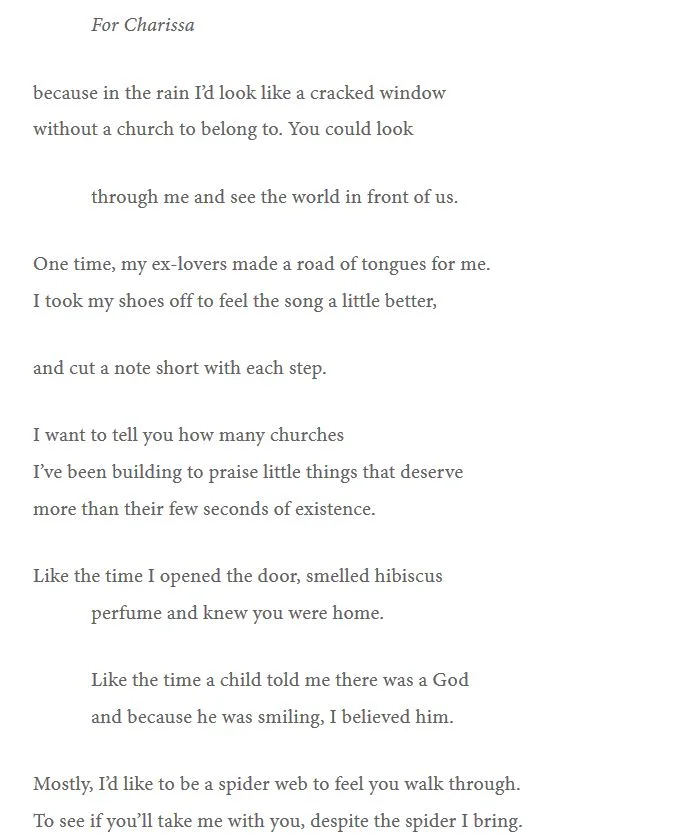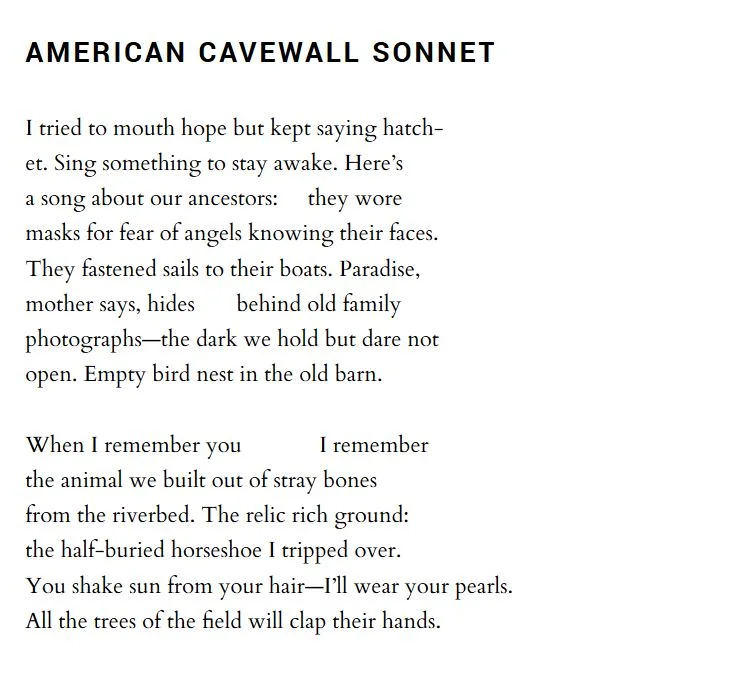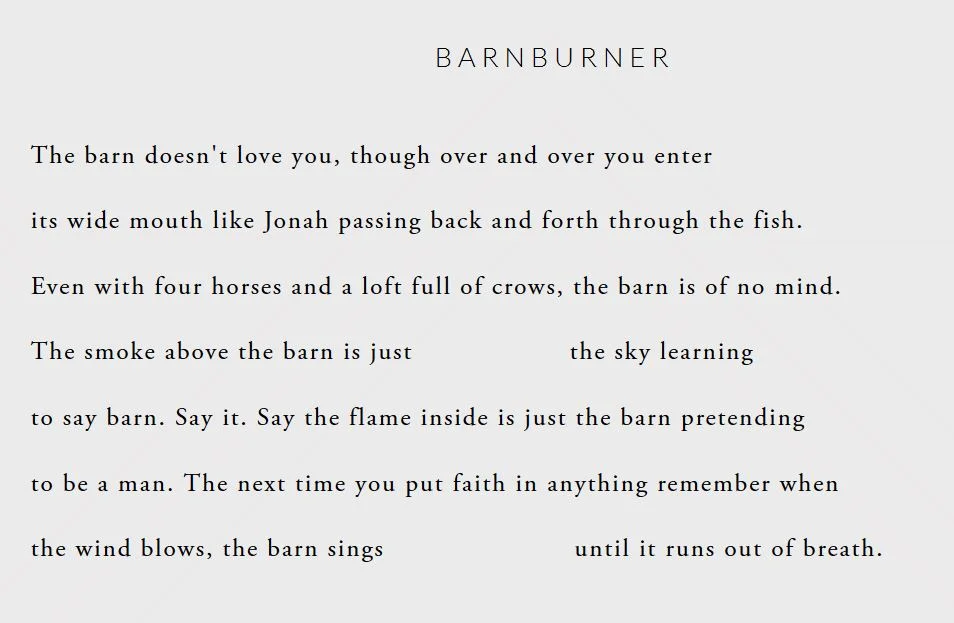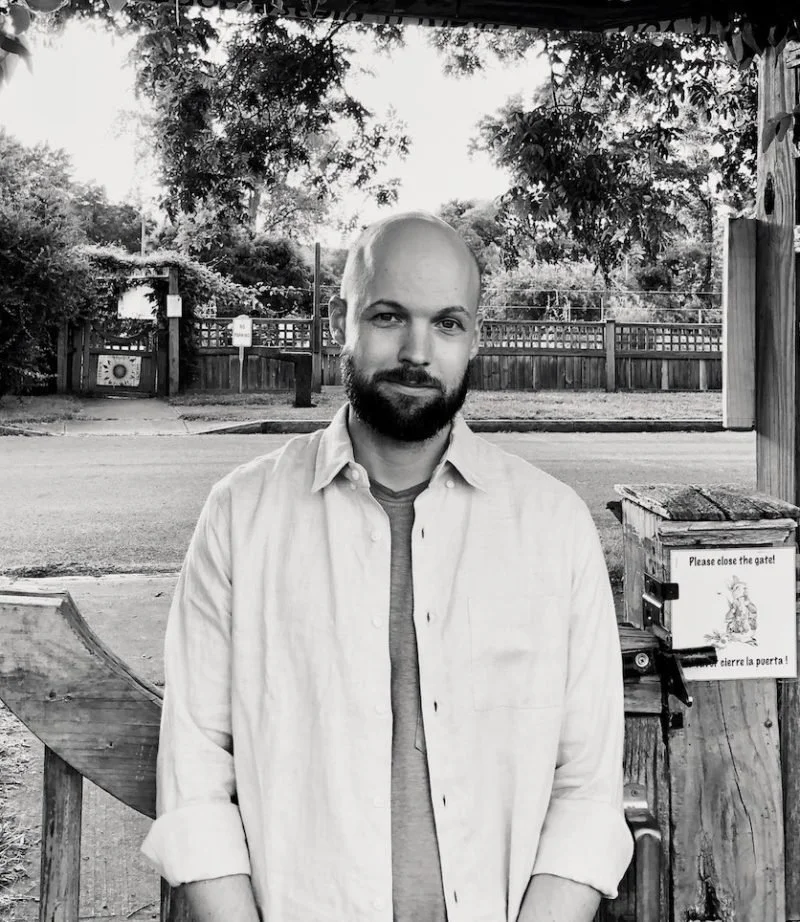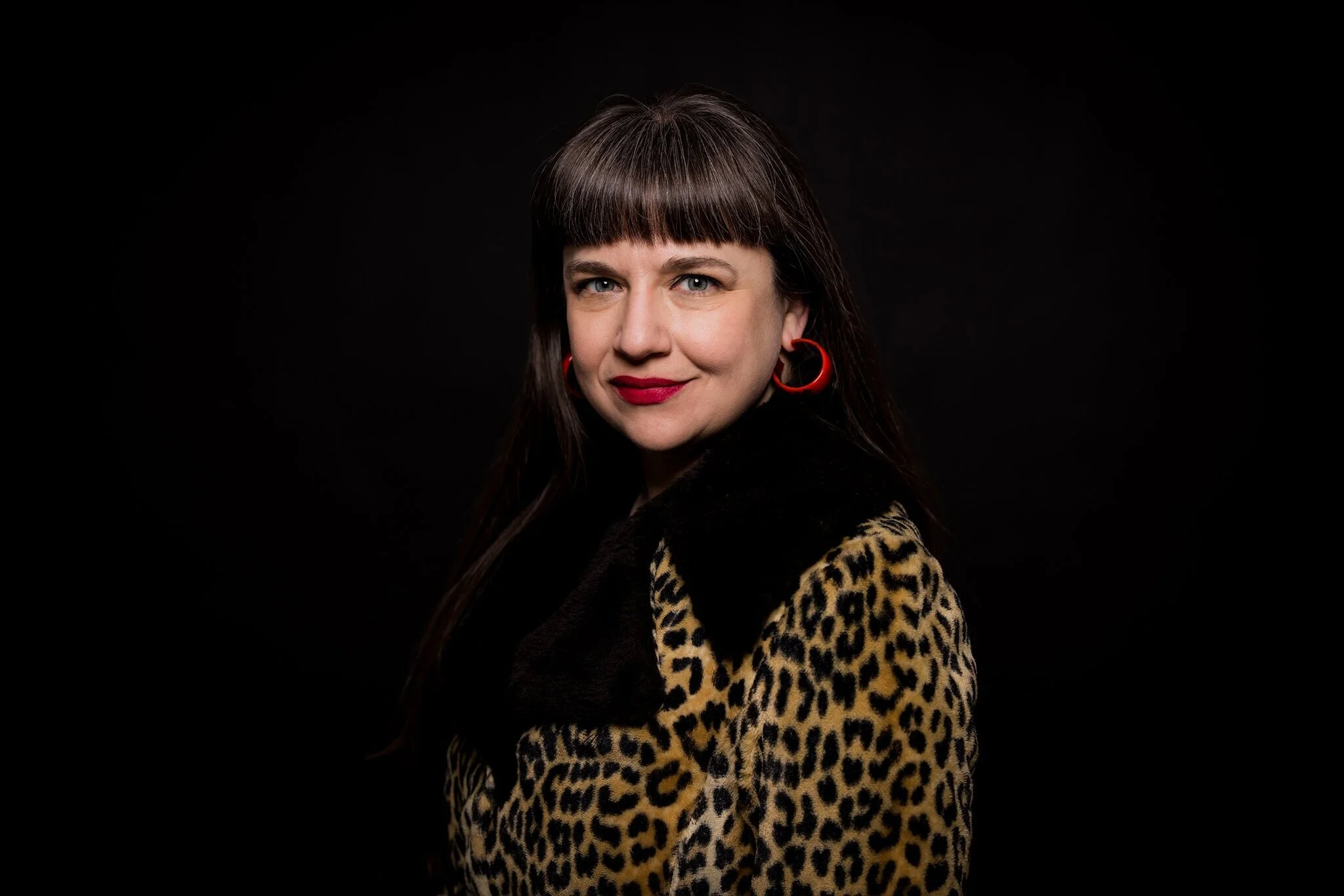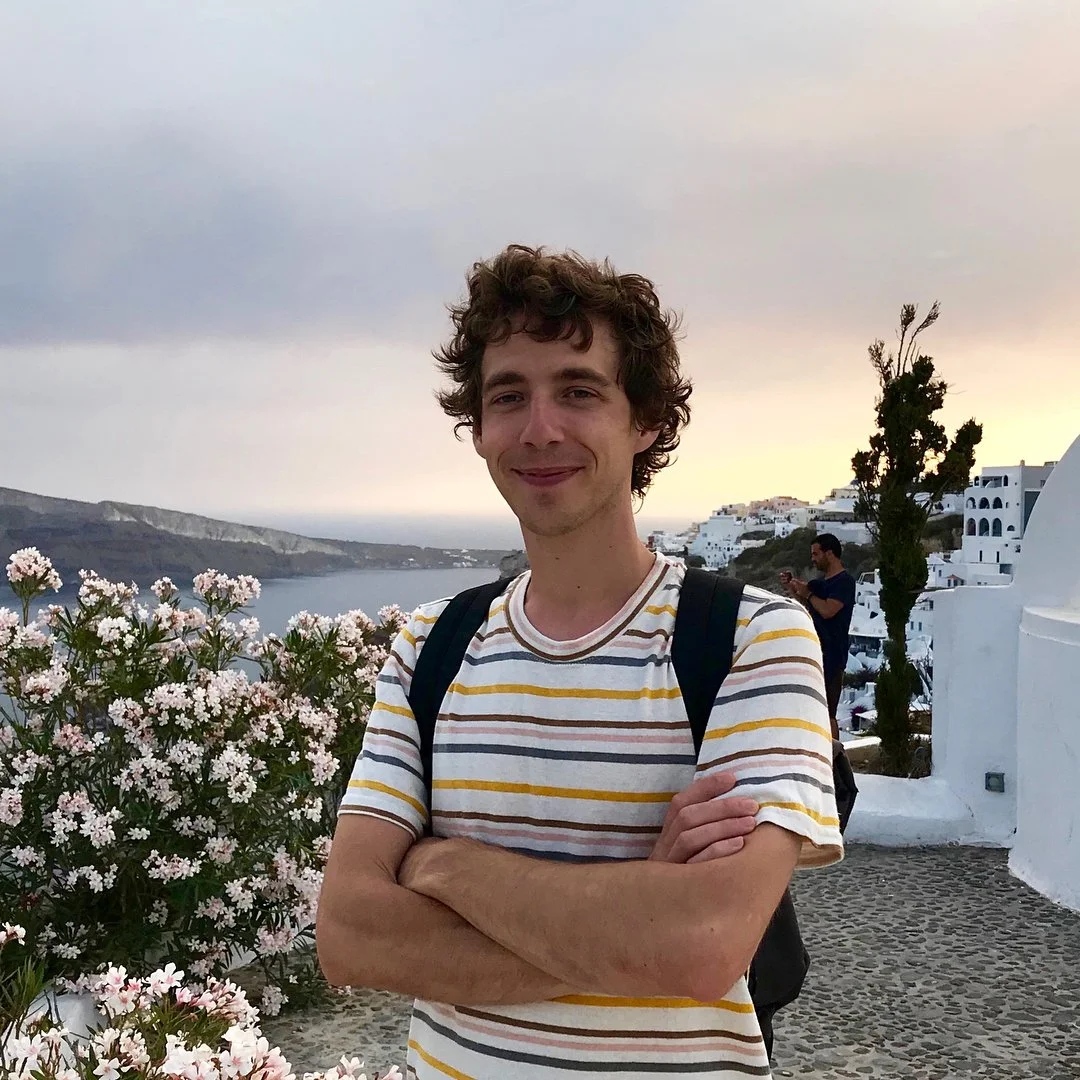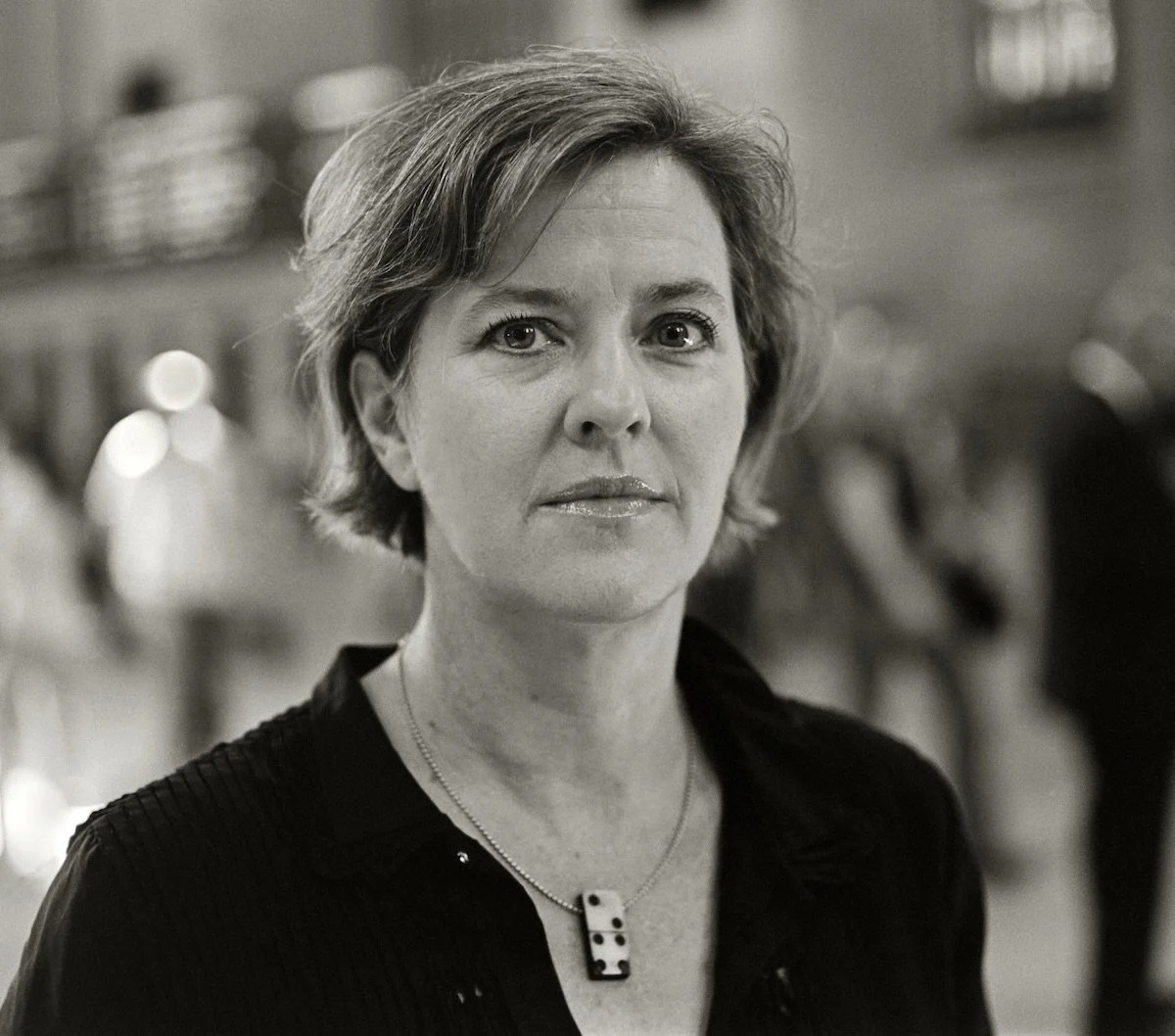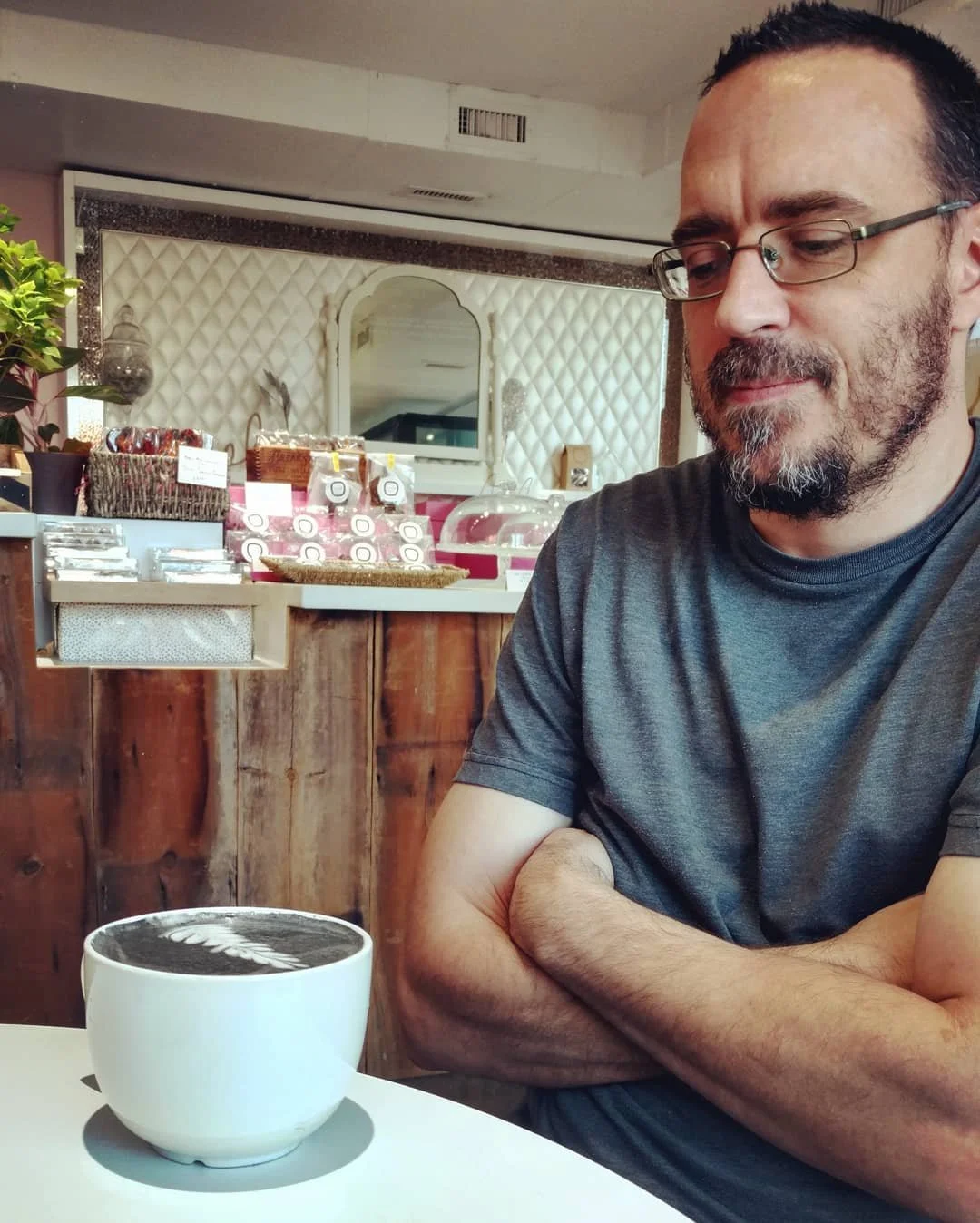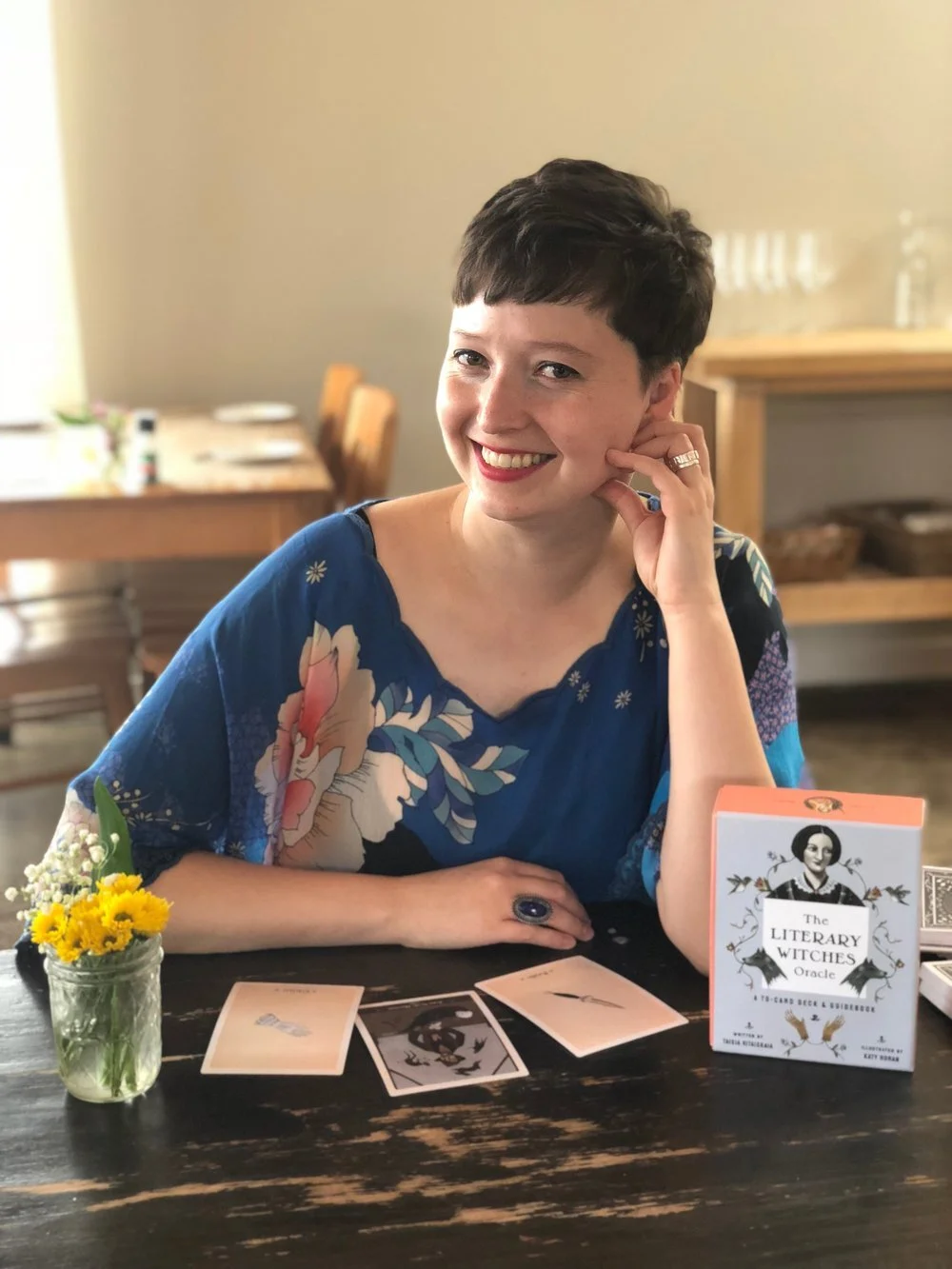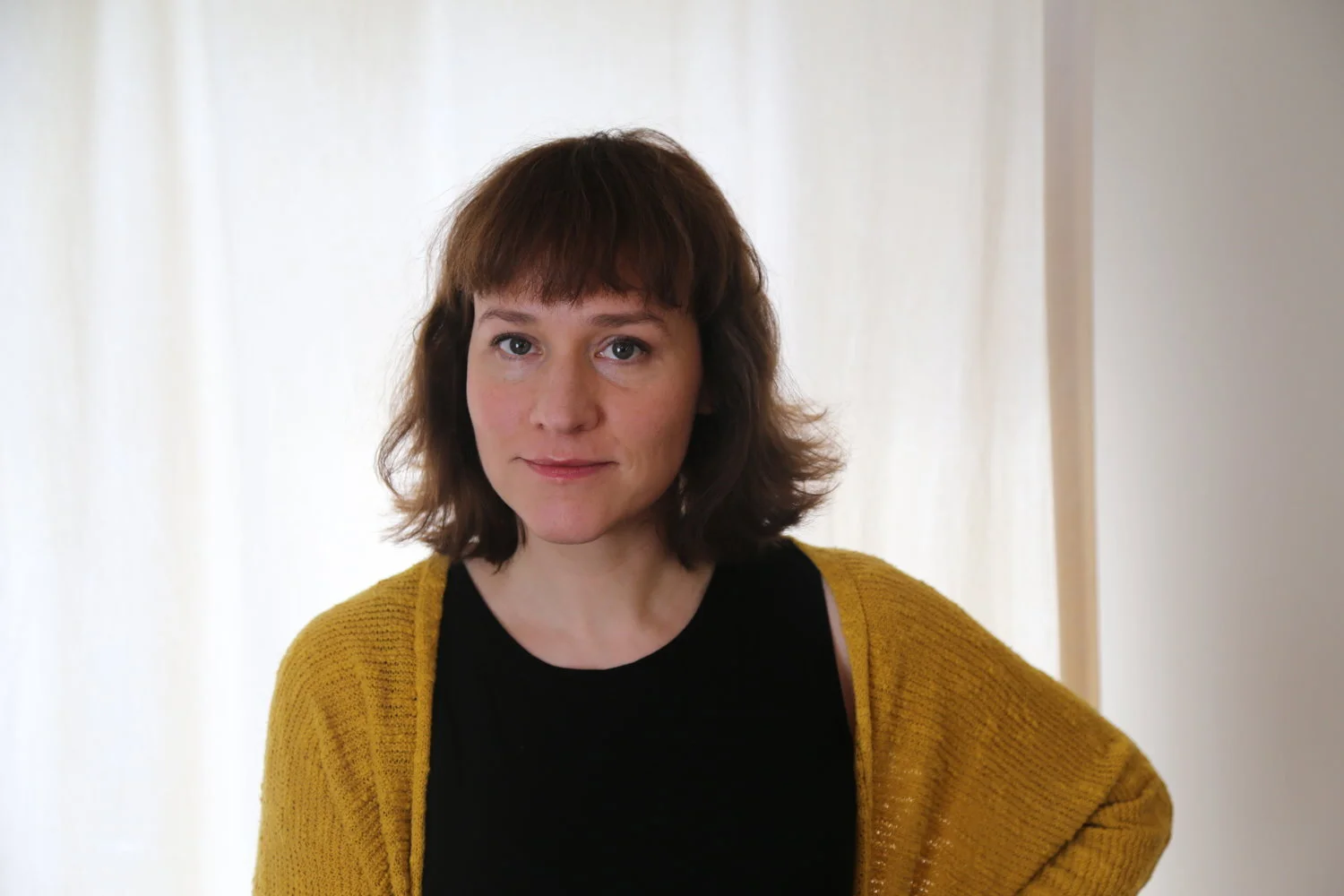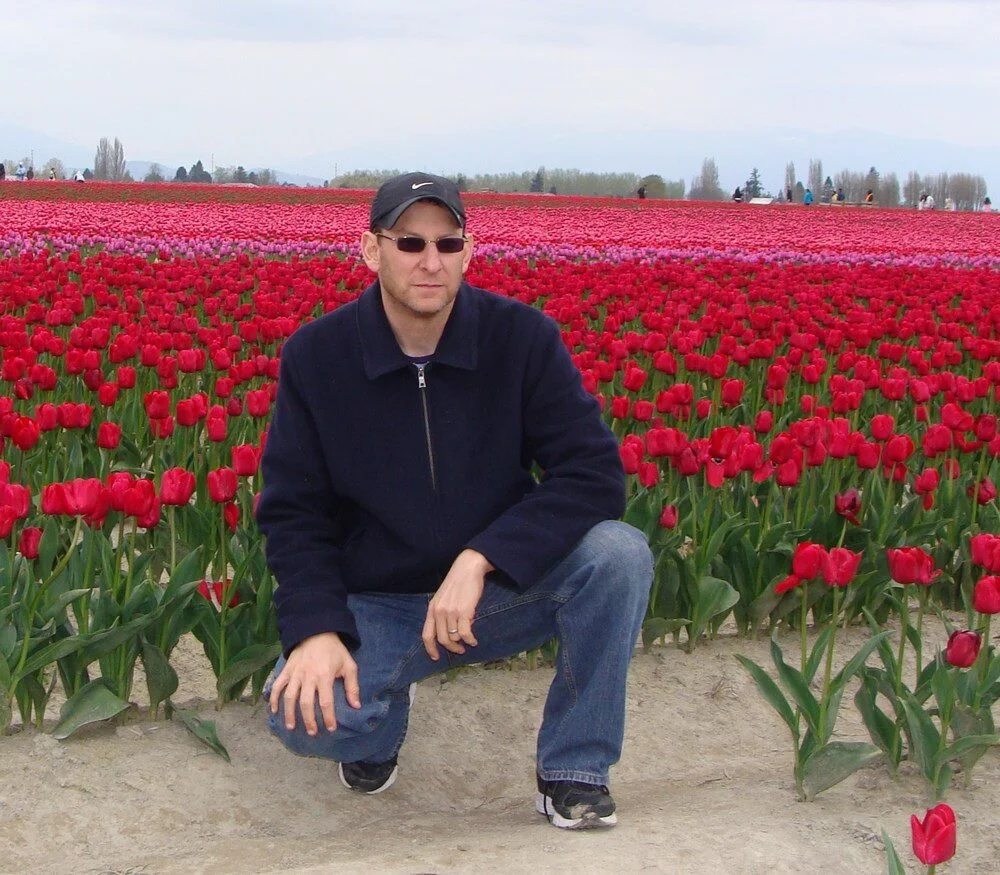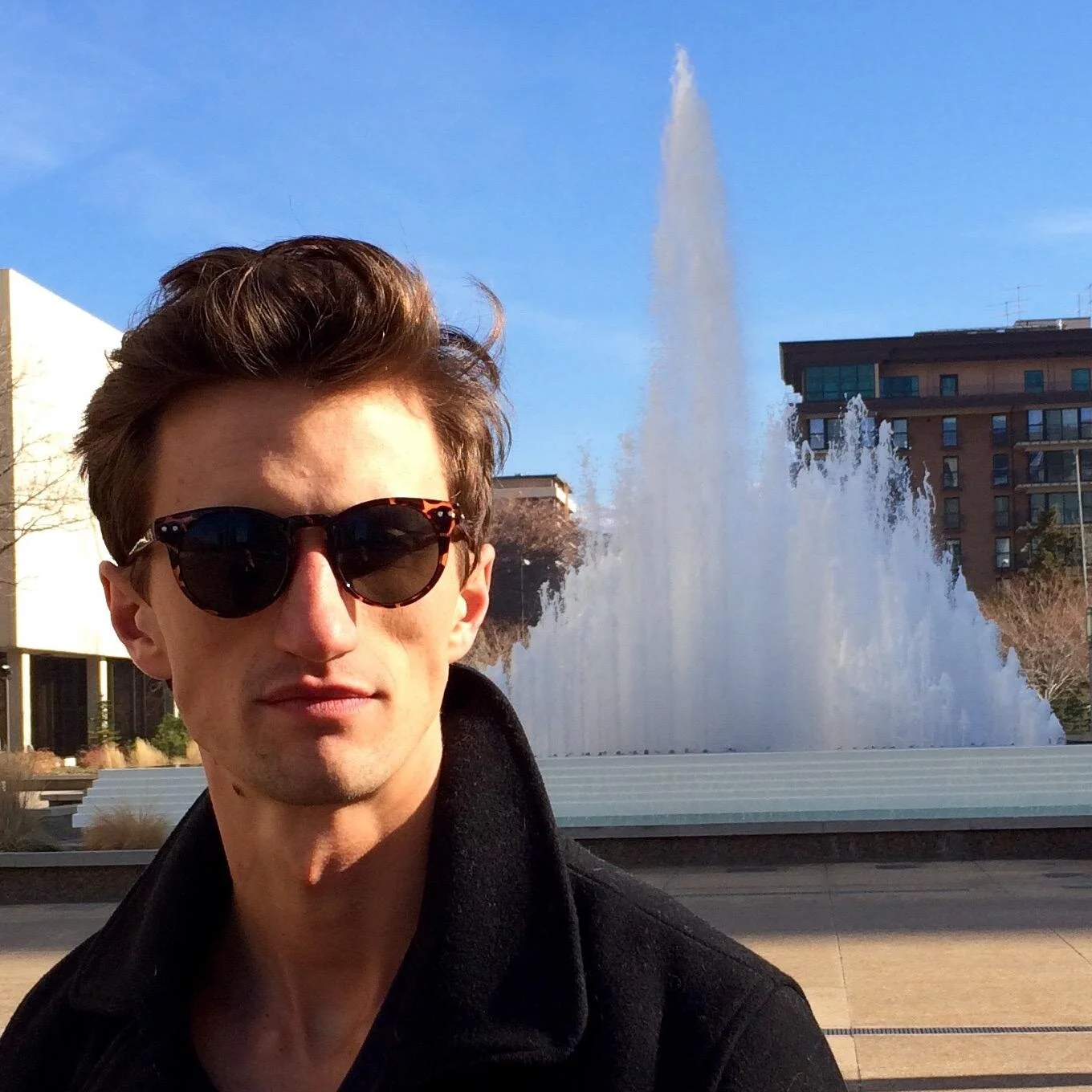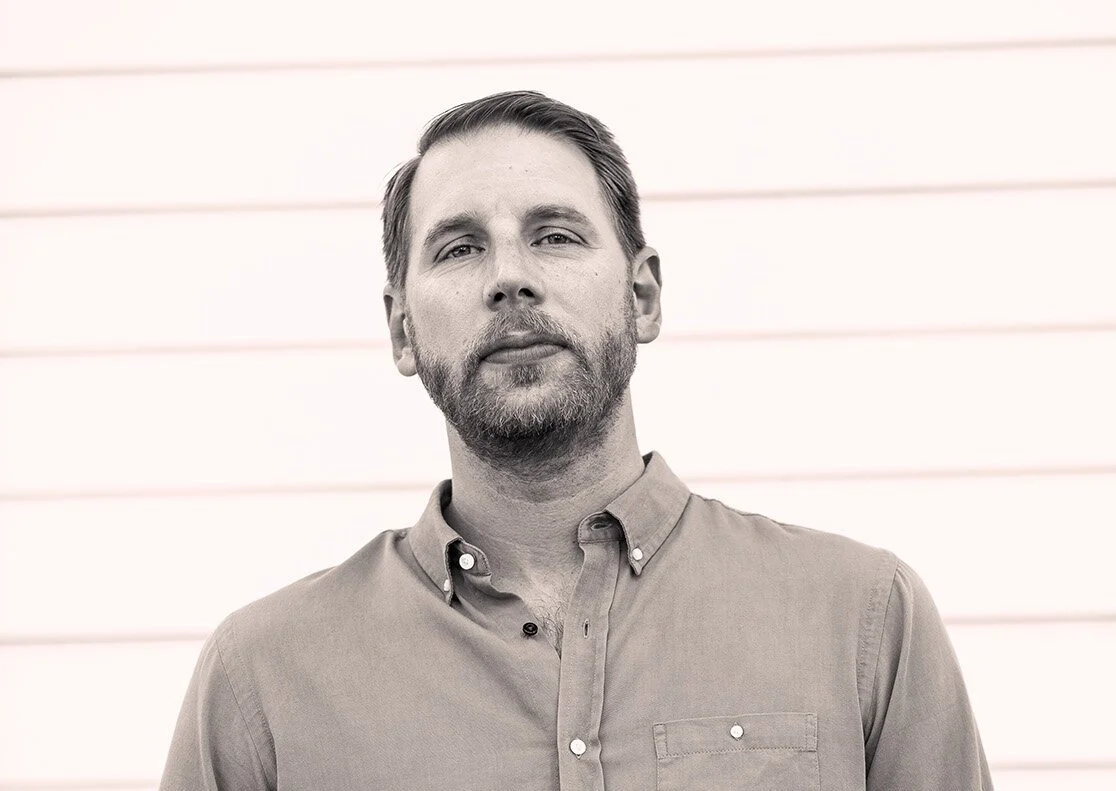C.T. Salazar is a Latinx poet and librarian residing in Columbus, Mississippi. A generous sharer of poetry and literature, he is also the founder and editor-in-chief for Dirty Paws, an online journal. Most recently, C.T. released the micro chapbook This Might Have Meant Fire through Bull City Press. Made up of ten poems, the tiny collection showcases his dedication and attention to the line. With a voice that juggles myth with faith, doubt with religion, awe with sorrow, C.T. is a poet whose work deserves to be read in slow motion. Like a prayer, like a mantra. I spoke with C.T. about his multiple passions, his favorite books, his current words, and what’s to come.
Let's begin with an icebreaker. If you could dive into any poet's (living or dead) unreleased work, who would it be and why?
I think Anna Kamienska. Do you know her? She wrote this poem (and many others) that stay in my head. Her lines are simple, but that simplicity is dangerous--her images cleave. Hers is the opposite of poetry as abundance; she brings the scythe. My next choice would be Lucille Clifton--just because I can never get enough.
Your very first chapbook is out in the world. How does it feel? What does the title mean to you?
It’s a really great feeling! I’m astonished and grateful that people are reading it. The title, This Might Have Meant Fire, is the possibility or potential consequence of getting it wrong--it comes from the full line, “God promised light, but this might have meant fire.” That not everything is what it looks like, or how deadly interpretation can be.
For this miniature collection, you chose 10 poems. What was the process like preparing this collection? Were they written around the same time? Thematic? Greatest hits on the desktop?
The time-span of the poems is around 2 years. A few of them are older than the idea of the chapbook itself. Actually, the only ones written close together are the three with the + sign--I wrote all three of those poems in the same month, which is crazy for me, because they’re some of the longest poems I’ve written, so three all at once was a lot of poetry writing for me. And the original manuscript was actually 19 poems! This is where I have to praise Bull City Press. Ross White and that team took the manuscript and had an incredible vision for it. All in all, I think I’m a person of less, and re-imagining the manuscript in a smaller scope actually gave me more room to work.
via Cotton Xenomorph
Picking one of the ten poems from your chapbook at random, can you provide a bit of a back story for this particular poem?
“Mostly I’d Like To Be A Spider Web” --I wrote this poem on my 25th birthday. For whatever reason, I was having a terrible day, and a friend of mine invited me to take a walk with at a wildlife refuge on the edge of our county. In late June, the walking path is covered with these huge spider webs, and because we were talking and not paying attention, we kept running into the webs. This is a really special poem to me now--I think about it every birthday, and how it’s possible to take a negative thought or negative energy and turn it into something meaningful. I don’t know if we can save ourselves anymore, but I know we’ll leave behind an archive of we survived, even when we were at the bottom we fought.
Now that your chapbook is out in the world, are you working on new material or perhaps a full-length manuscript?
Yes! I’ve got a full-length that I’m trying to edit to its final form(s), and also a new chapbook of sonnets. I’m not writing a lot of new material right now, I’m like 90% editing.
We spoke about this briefly a couple of months back, but your poems are full of theological undertones (and you just had a poem about Noah's unnamed wife that went viral). Can you explain your fascination/fixation on religious themes throughout your work?
I think my vocabulary is a religious one. I have a Southern Baptist mother and a Latino Catholic father. I live in Mississippi. In odd ways, these intersecting ideas of reverence take up a lot of space in my mind and writing. I’m not as reverent as my poems would have you believe. Plus, in the space of the poem, anything’s possible. Even if this universe can’t rationally accommodate a God, why not have the comfort of a God in the world of the poem?
Along with your own writing, you also edit the literary journal Dirty Paws. How has the role of editor impacted your poetry? What's next for Dirty Paws?
I think being an editor has given me the ability to not just read with appreciation but also read critically. I love the singular line, its taut-ness and music, so I’m always trying to investigate how other poets accomplish the line.
A poet, an editor, and a librarian. What's your history with the library? You used to be a children's librarian, but no longer, right?
Being a librarian is a huge part of my identity. I really believe liberty on the individual level begins and ends with accessible information. I'm in love with the community libraries foster. And yea! I was a children's librarian for a little over four years, and had the time of my life. There's nothing more inspiring in the language arts than working through language with children. I've taken a higher position at another library now, but thankfully I still get to lead story times every now and then.
Given your time as a children's librarian and my fixation with kid's books, what are some of your favorite children's books to recommend to readers both young and old?
Definitely Home by Carson Ellis. I love the vocabulary this introduces during story times: Babushka, Kenyan, Wigwam, etc. It's a phenomenal little book for introducing an array of lifestyles and cultures to children. Ellis is also a great artist, and each page is knock-down beautiful. Also, Sam & Dave Dig A Hole by Mac Barnett and illustrated by Jon Klassen. It's hilarious. It's also about two friends working together. Six Dots: A Story of Young Louis Braille is a great story book / children's biography on the inventor of Braille. There's like a hundred more I could list so we'll stop there.
via Foundry
Outside of your own work, who/what have you been reading recently?
Poetry-wise, I’ve been reading Joy Harjo’s incredible new and selected How We Became Human, Edmond Jabes’ The Book of Questions, and a ton of newer Latinx titles: Ugly Music by Diannely Antigua, Heart Like A Window, Mouth Like A Cliff by Sara Borjas, The Inheritance Of Haunting by Heidi Andrea Restrepo Rhodes, While They Sleep (under the bed is another country) by Raquel Salas Rivera, and Revelations by Ruben Quesada.
Nonfiction-wise, I just finished Anti-Oedipus: Capitalism and Schizophrenia by Deleuze and Guattari, Heavy by Kiese Laymon, Hope In The Dark, by Rebecca Solnit, Are Prisons Obsolete? by Angela Y. Davis, (rereading) Open Veins Of Latin America by Eduardo Galeano, On Theater: An Aesthetics by Brecht, and I’m just starting My Seditious Heart: Collected Nonfiction by Arundhati Roy.
Have you had any recent dreams worth sharing?
Sadly I can’t remember my dreams lately. Bummer. They’re usually very ordinary and I have a hard time distinguishing them from real life when I’m trying to remember something. I dream about my wife a lot.
If you can, provide a photo of your workspace or describe with words. What are some essentials while you write/edit?
My writing space is a yellow table that’s currently also my dining room table. This table’s the only piece of furniture I’m sentimentally attached to because it was my grandmother’s. My mother grew up every day eating breakfast at it, and that’s so cool to me. Sitting down at this table and knowing the lineage of strong women that grew up around it is really special to me. This domestic heirloom is my productive space. Plus it’s a huge space and I’m a person (librarian) of many open books at once. Always coffee.
via Matador Review
For this ongoing author interview series, I'm asking for everyone to present a writing prompt. It can be as abstract or as concrete as you choose.
Think of a sign near where you live or work to include in the poem. CASH ONLY, NO TRESPASSING, BEWARE OF DOG, JOHN 3:16--whatever. Imagine a prophet, or angel, or deceased relative is placing these signs trying to communicate with you, and what they’re trying to say. Please look up the definition of despair and redefine it. This can be a prose poem. The title should be titled after a visual piece or song, as if the poem is an ekphrasis, even though it’s not.
In closing, do you have any advice for writers trying to grow? Or rather, what's something you would have like to have known when you first started writing?
Maybe a healthy relationship with the world starts with a healthy relationship with the self. Somehow, this is connected to poetry. Maybe the poem is waiting for the poet to understand himself or herself before revealing anything wonderful about the world. Or the poem wants you to know what you value in the world you deserve to value in yourself.
Any final thoughts / words of wisdom / shout-outs?
Thank you so much for these questions. And shoutout to the poets I’m so lucky to call my friends and my inspiration--John Dorroh, Beth Gordon, R.A. Villanueva, Hannah VanderHart, Shara Lessley, Dani Putney, Paula Harris, Emma Bolden, Celeste Schueler, J. David, Zackary Lavoie, every. single. person. at Bull City Press, and so many more. I’m constantly inspired by all the amazing work so many people I know are making.




